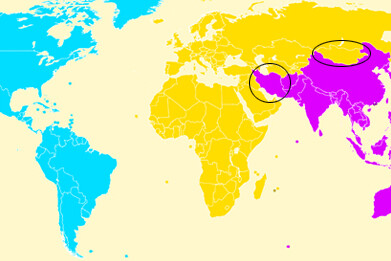After firing eight journalists, the South African broadcaster now has to properly justify its reasons and explain why it shouldn’t be held liable for the costs.
The South African Broadcasting Corporation (SABC) is still in deep waters. After eight journalists were fired last month, the corporation has been under charge by South Africa’s Labour Court, and was asked to submit affidavits to justify its decisions.
The eight professionals were fired because they openly and publicly opposed SABC’s directions to ban the coverage of violent images and protests happening in the country. Seven of them were reinstated following a Labour Court decision last week. The Court then asked Sebolelo Ditlhakanyane and Simon Tebele to explain their reasons and also why they should not be held personally liable for the expenses of the case.
Simon Tebele, who was recently appointed as Head of News, distanced himself from the decision to fire the journalists. Tebele said he was complying with SABC policies and disciplinary code of conduct and thus should not be charged for the court case.
On the other hand, Ditlhakanyane, Head of Radio News, said she solely followed Tebele’s instructions and stated where she disagreed with them.
According to Solidarity’s Centre for Fair Labour Practices the explanations for their decisions is unclear and vague. “Instead of putting direct and pertinent evidence before court, the sworn affidavits only contain very vague assertions,” the head of Solidarity, Anton van der Bijl said.
Various human rights organisations have now spoken out and encouraged SABC to guarantee and protect rights granted by the country’s constitution, such as freedom of expression. For example, the South African Human Rights Commission (SAHRC) urged SABC to consider its role in advocating these rights, regarded as “critical pillars upon which our democracy may progressively flourish”, said spokesperson Gail Smith.
Even if the organisation said it is currently unable to investigate the charges, it has been monitoring and will continue to monitor “with concern, developments around recent allegations of mismanagement, poor corporate governance, questionable editorial decisions and unfair labour practices taking place at the public broadcaster”.
The organisation further urged the South African broadcaster “to stay true to the principles of maximum disclosure, openness, transparency and accountability, limiting rights only to the extent permissible in our constitution”.
